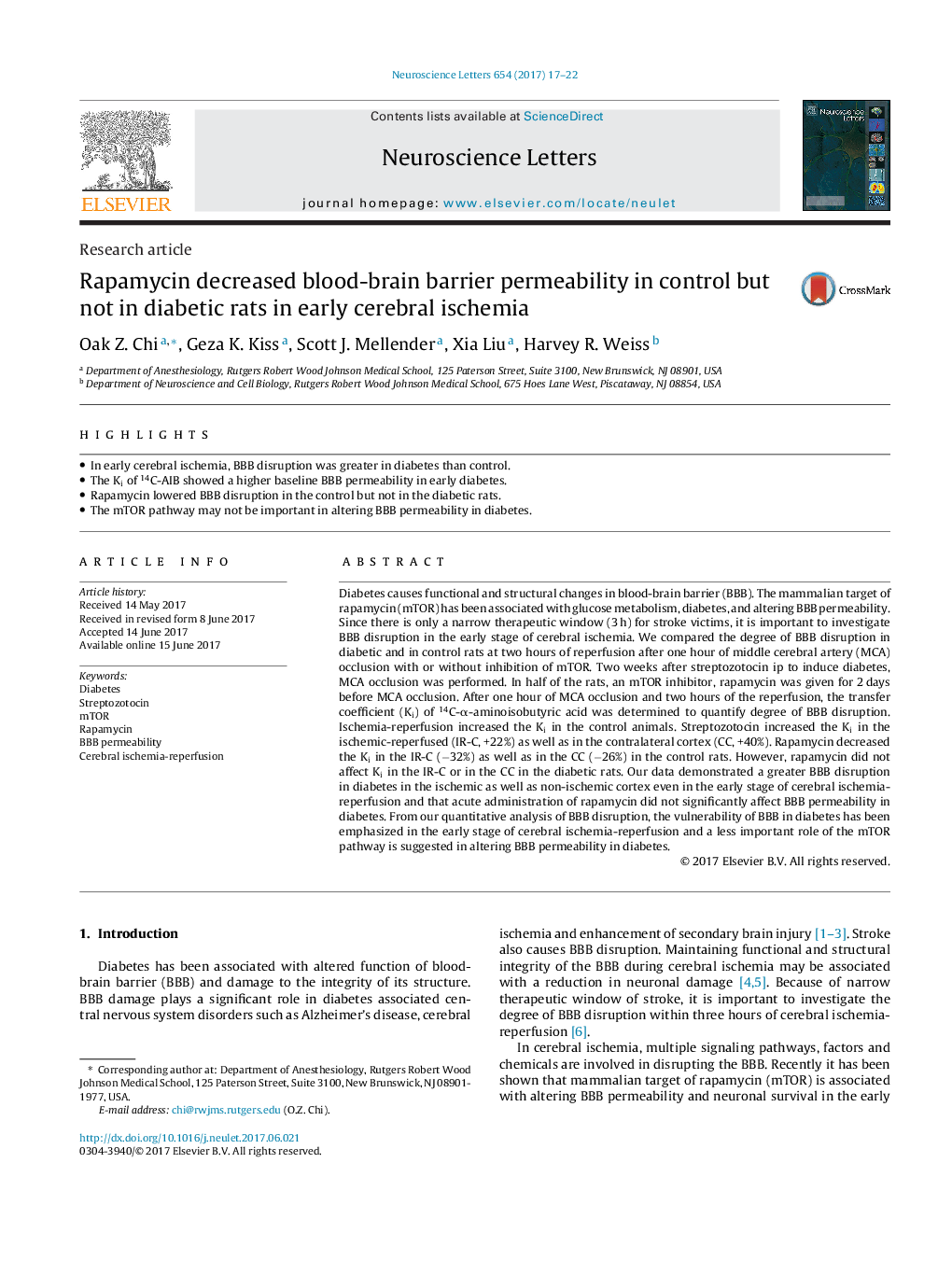| Article ID | Journal | Published Year | Pages | File Type |
|---|---|---|---|---|
| 5738618 | Neuroscience Letters | 2017 | 6 Pages |
â¢In early cerebral ischemia, BBB disruption was greater in diabetes than control.â¢The Ki of 14C-AIB showed a higher baseline BBB permeability in early diabetes.â¢Rapamycin lowered BBB disruption in the control but not in the diabetic rats.â¢The mTOR pathway may not be important in altering BBB permeability in diabetes.
Diabetes causes functional and structural changes in blood-brain barrier (BBB). The mammalian target of rapamycin (mTOR) has been associated with glucose metabolism, diabetes, and altering BBB permeability. Since there is only a narrow therapeutic window (3 h) for stroke victims, it is important to investigate BBB disruption in the early stage of cerebral ischemia. We compared the degree of BBB disruption in diabetic and in control rats at two hours of reperfusion after one hour of middle cerebral artery (MCA) occlusion with or without inhibition of mTOR. Two weeks after streptozotocin ip to induce diabetes, MCA occlusion was performed. In half of the rats, an mTOR inhibitor, rapamycin was given for 2 days before MCA occlusion. After one hour of MCA occlusion and two hours of the reperfusion, the transfer coefficient (Ki) of 14C-α-aminoisobutyric acid was determined to quantify degree of BBB disruption. Ischemia-reperfusion increased the Ki in the control animals. Streptozotocin increased the Ki in the ischemic-reperfused (IR-C, +22%) as well as in the contralateral cortex (CC, +40%). Rapamycin decreased the Ki in the IR-C (â32%) as well as in the CC (â26%) in the control rats. However, rapamycin did not affect Ki in the IR-C or in the CC in the diabetic rats. Our data demonstrated a greater BBB disruption in diabetes in the ischemic as well as non-ischemic cortex even in the early stage of cerebral ischemia-reperfusion and that acute administration of rapamycin did not significantly affect BBB permeability in diabetes. From our quantitative analysis of BBB disruption, the vulnerability of BBB in diabetes has been emphasized in the early stage of cerebral ischemia-reperfusion and a less important role of the mTOR pathway is suggested in altering BBB permeability in diabetes.
